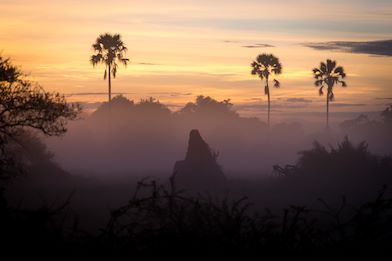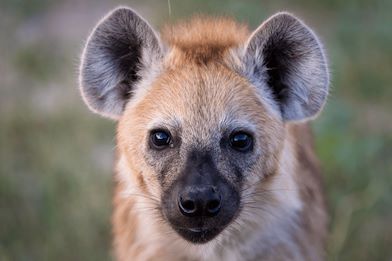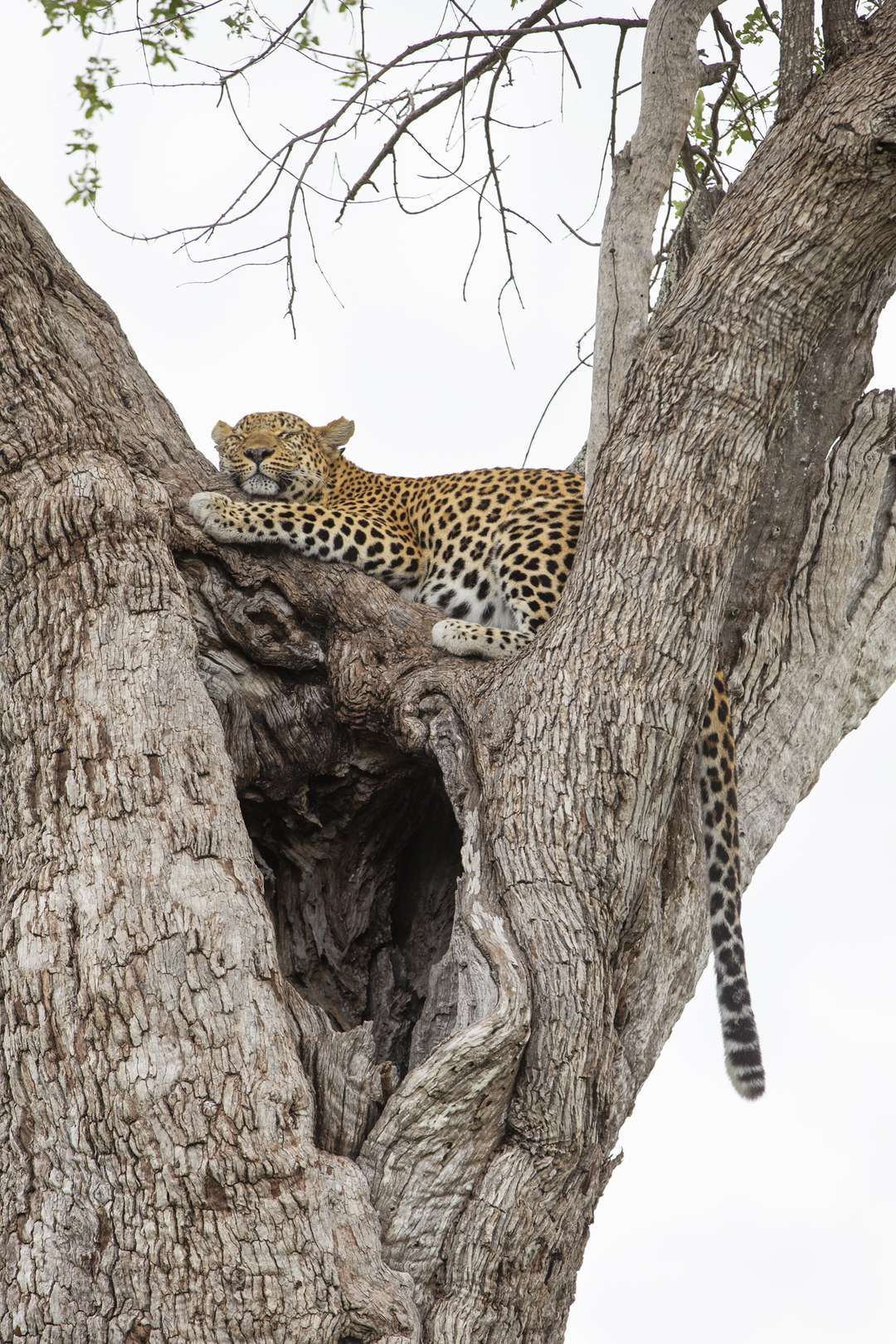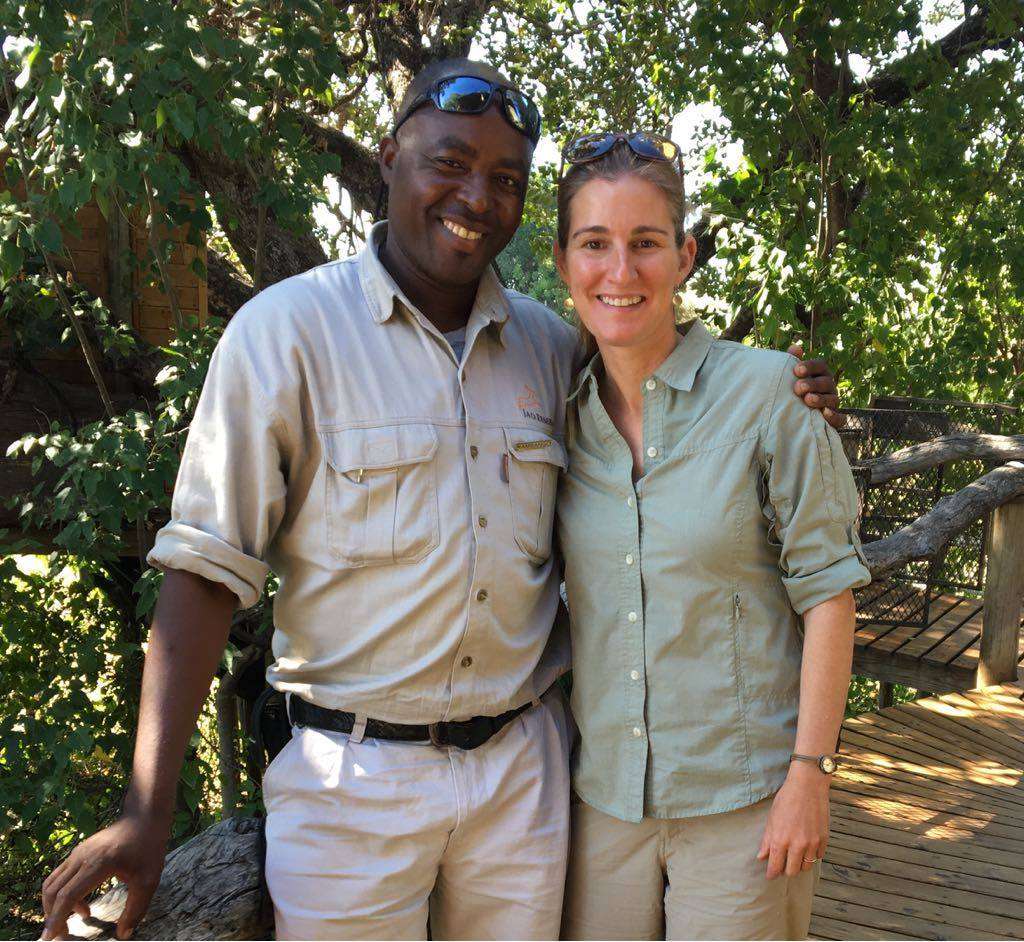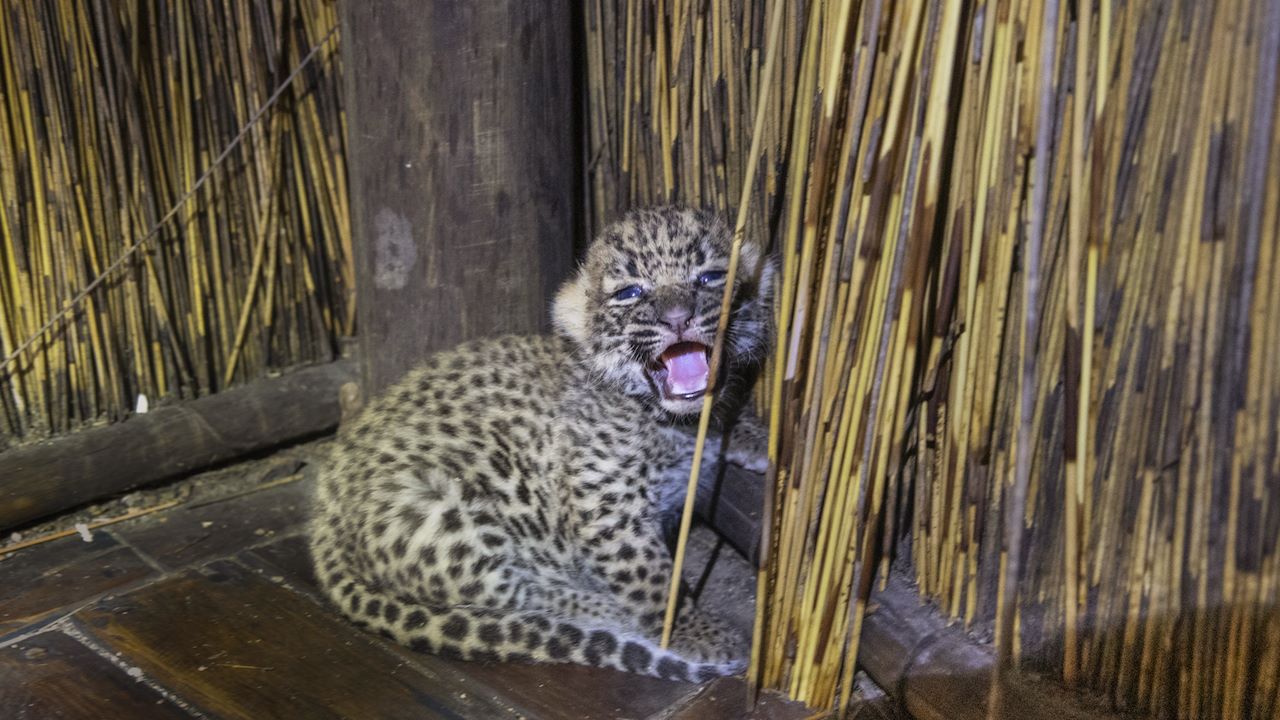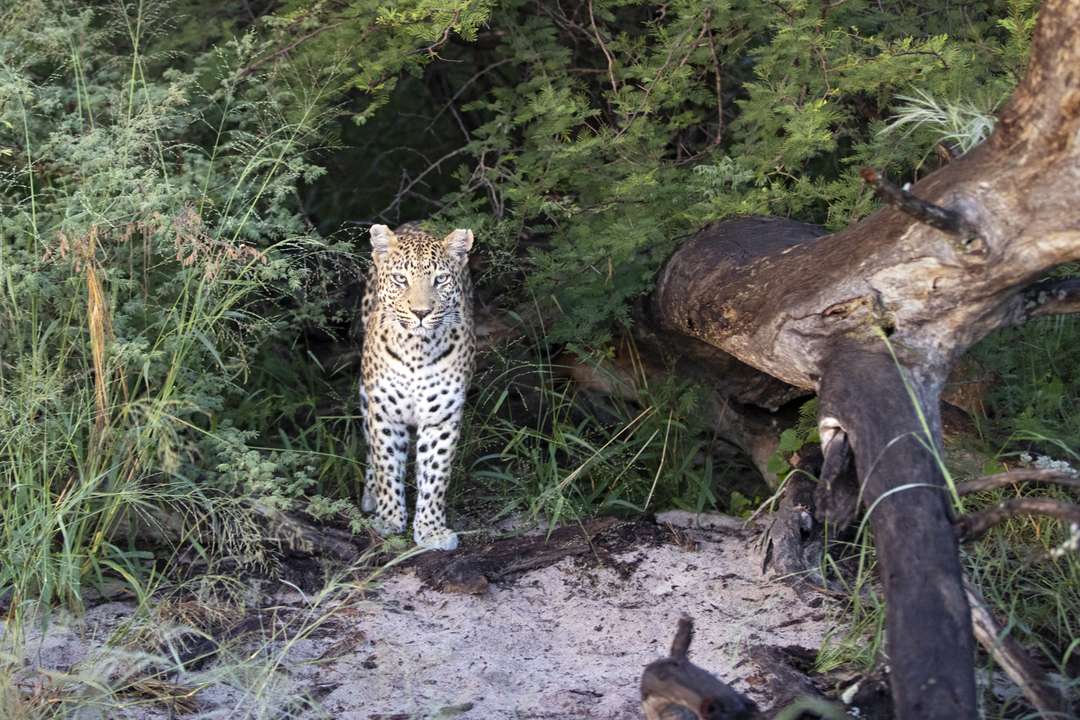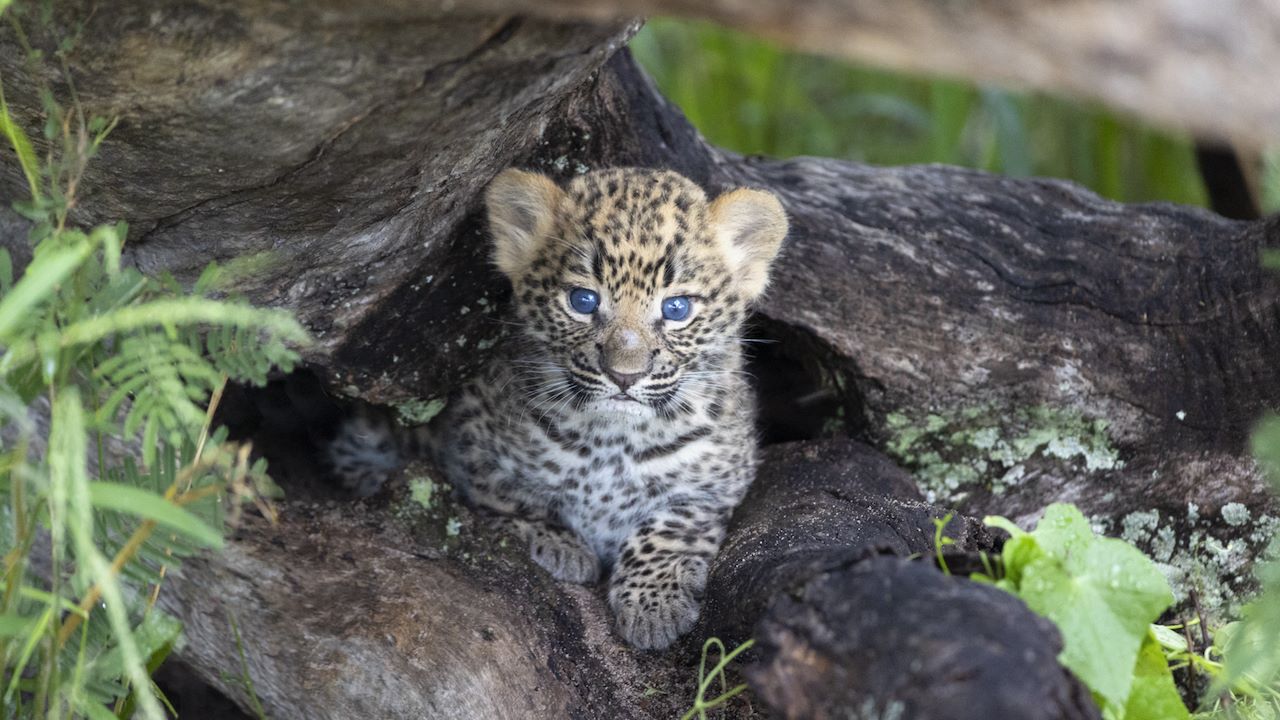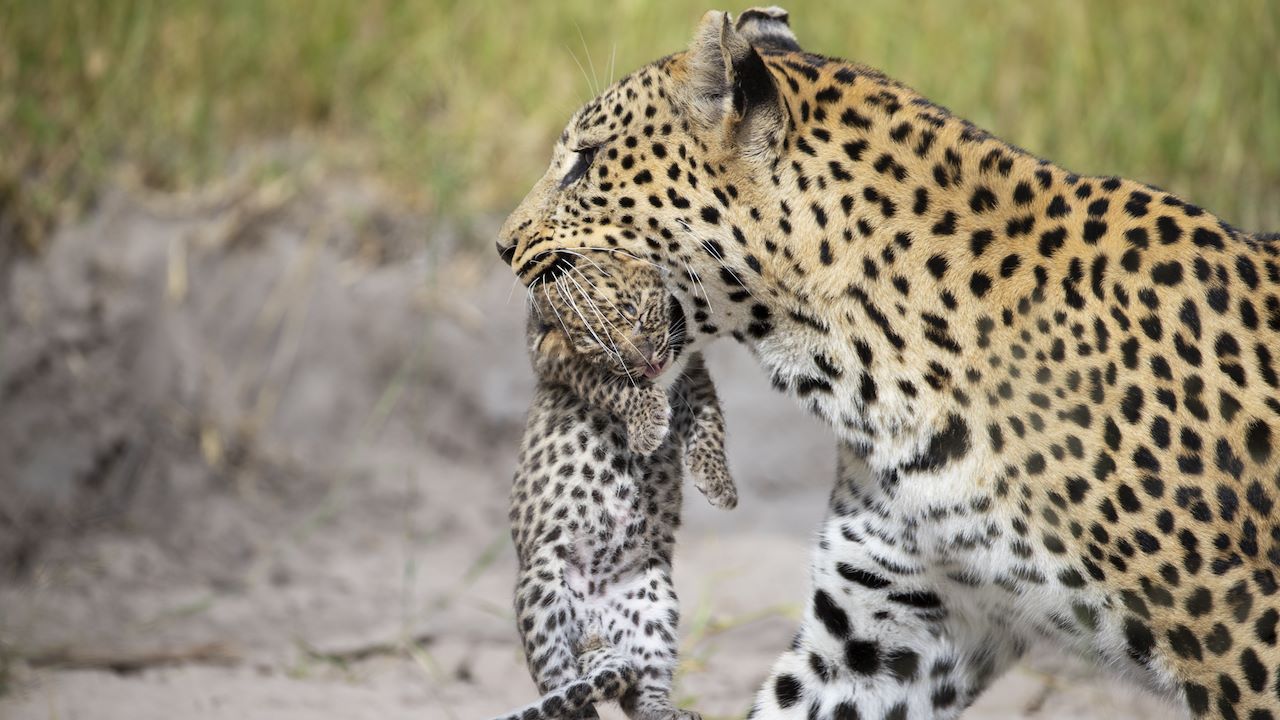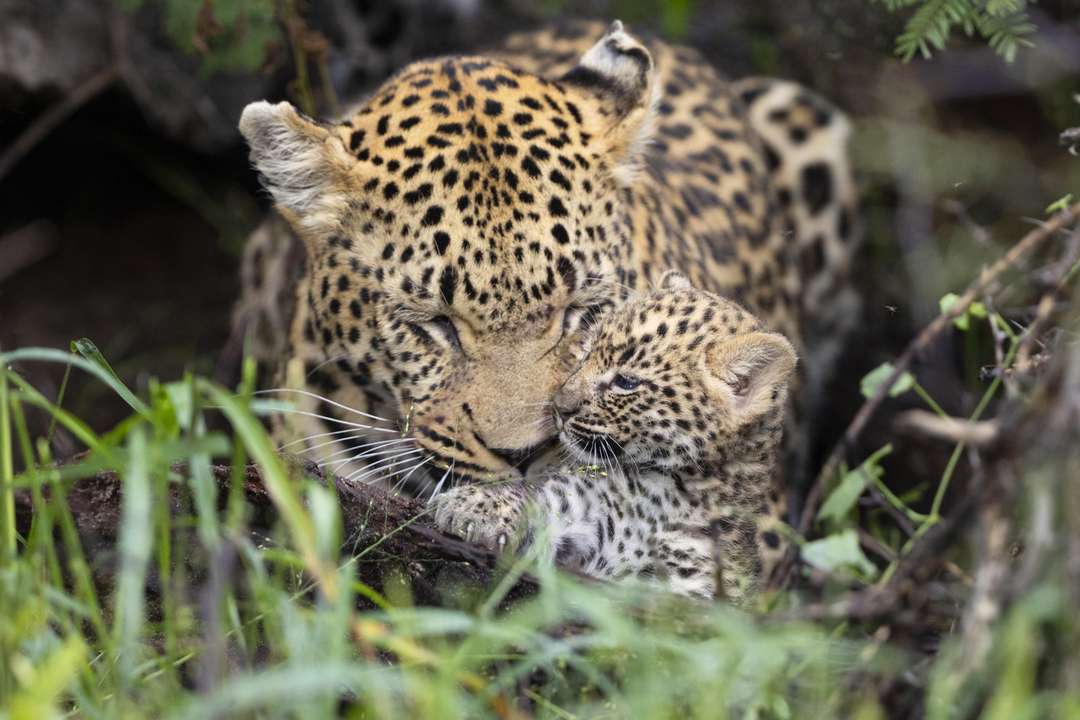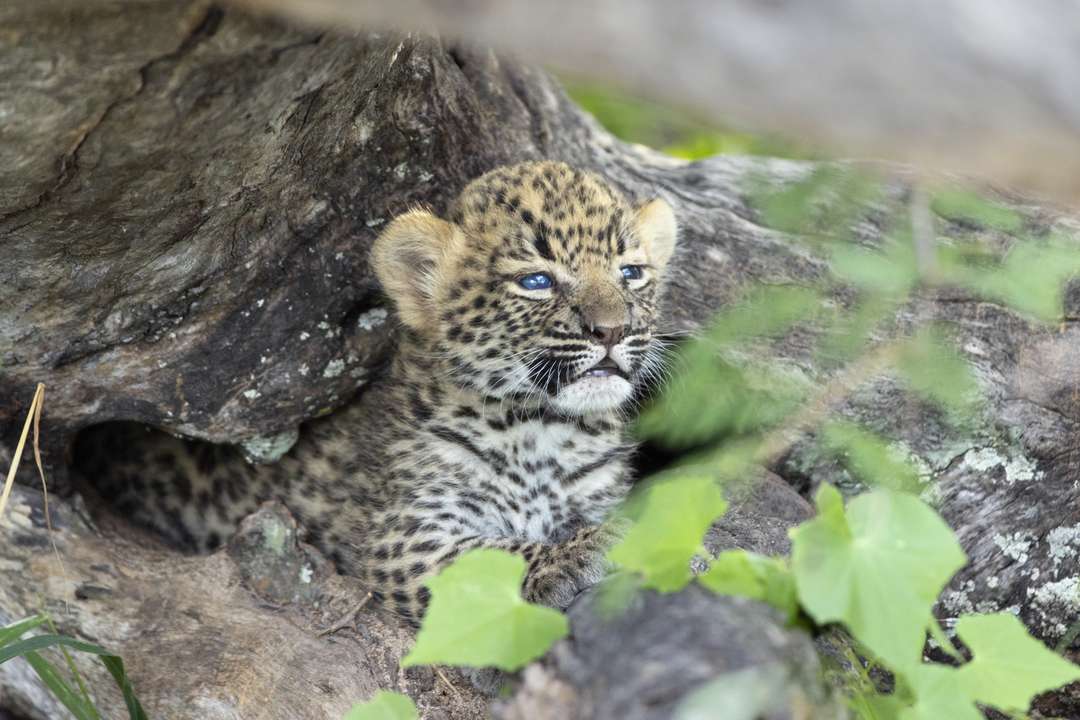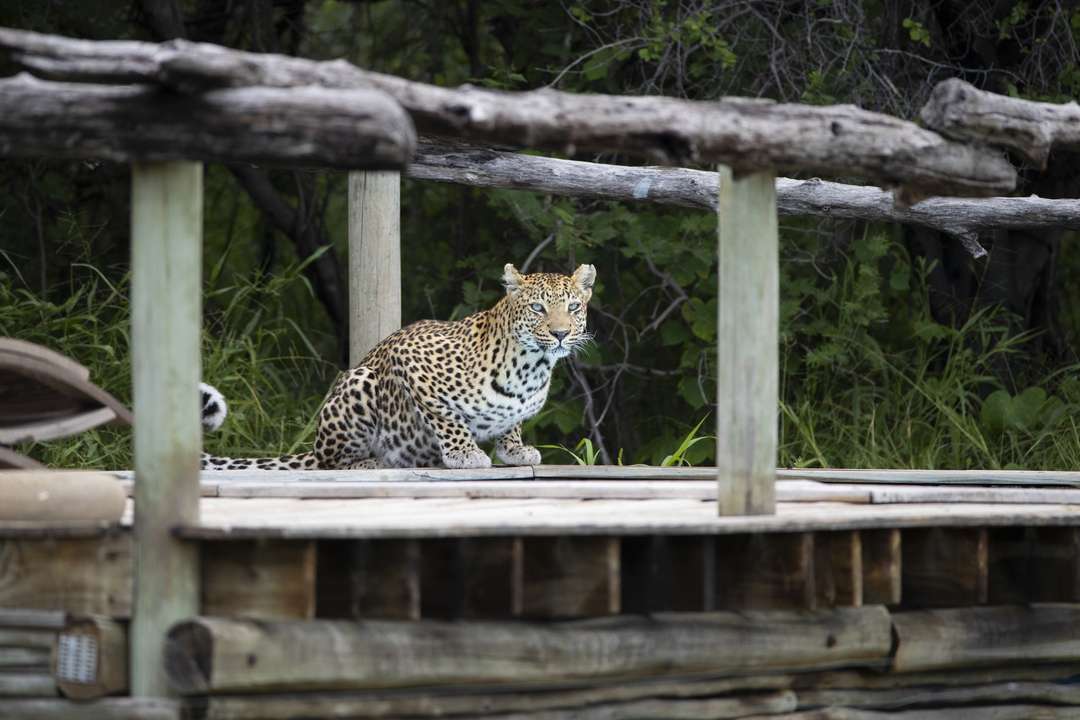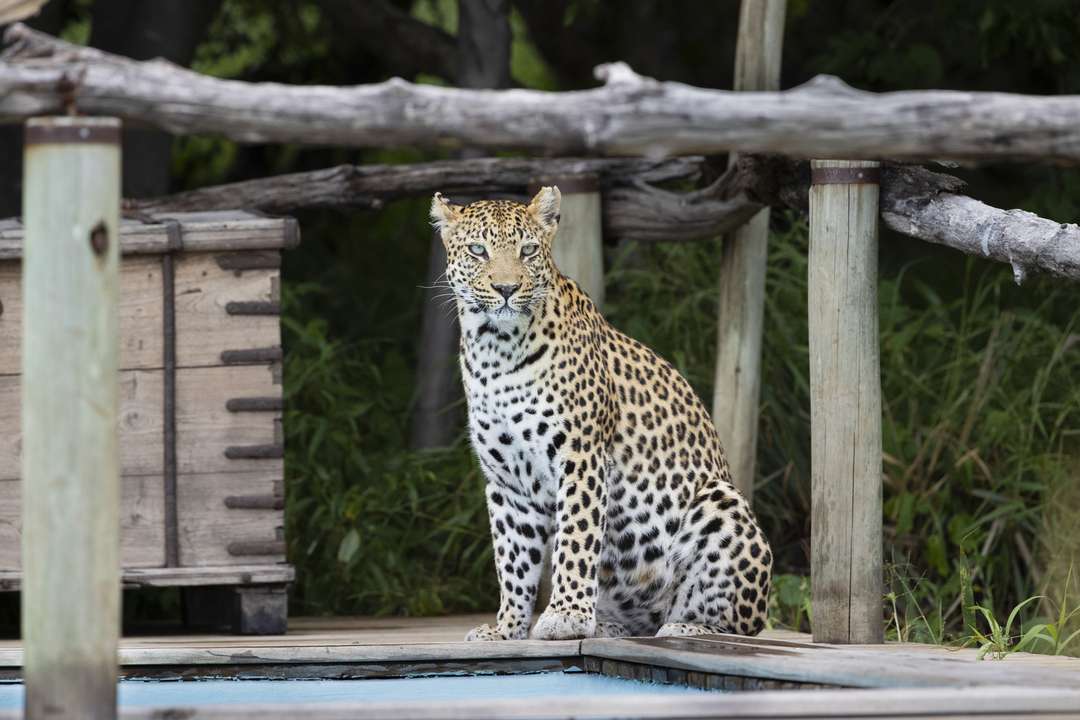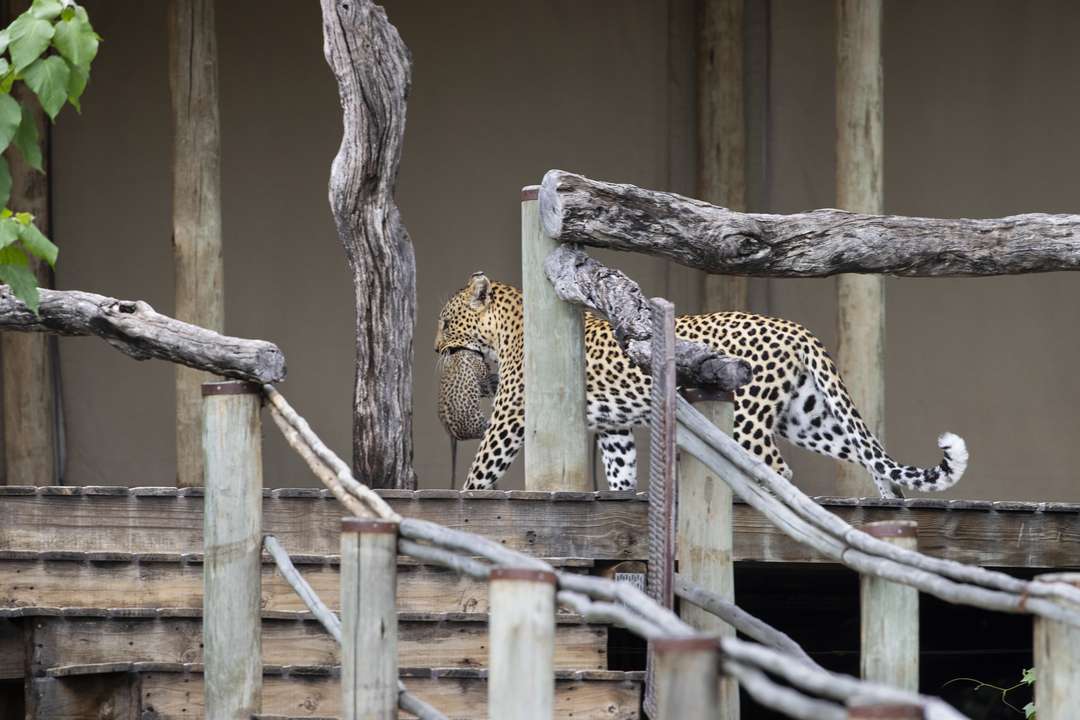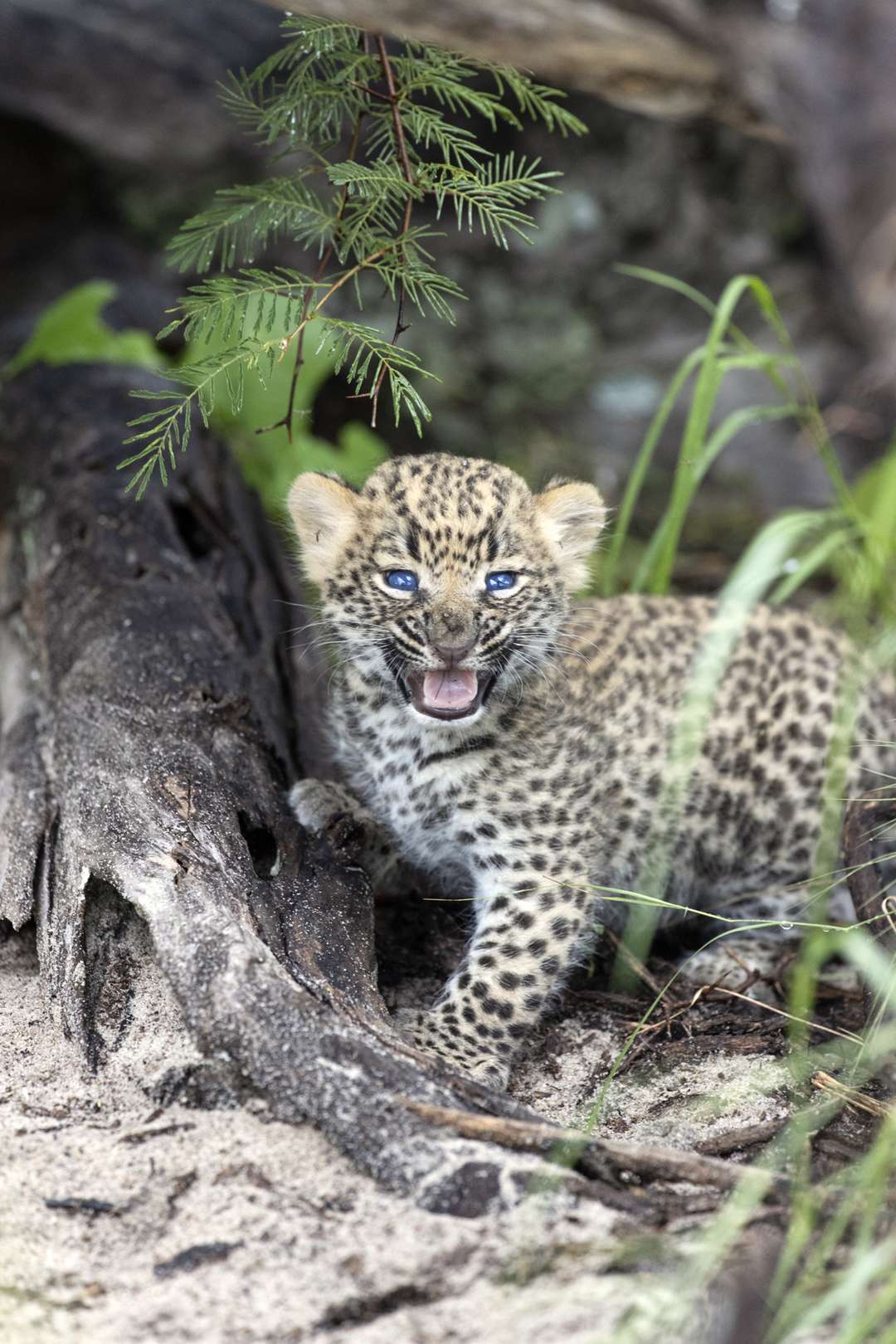
Image by Suzi Eszterhas
The Tubu Camp leopard lives in the Okavango Delta’s Jao Reserve. In the heart of her territory is Tubu Tree Camp, a small and luxurious, but low impact, safari camp on Hunda Island. The Tubu Camp Female grew up around the camp, and is regularly spotted on game drives on and around the island.
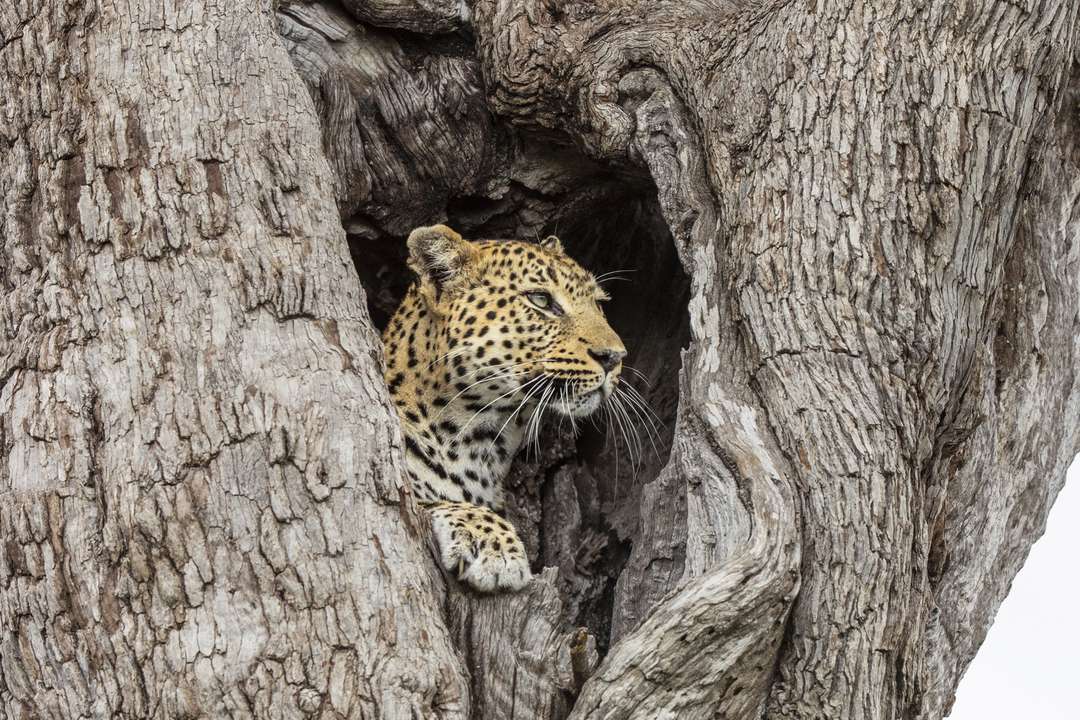
The Jao Reserve is an Okavango haven, safe from poachers and vehicle crowding. This leopardess grew up around safari vehicles behaving responsibly, and having never been harassed, she trusts vehicles and is the most relaxed leopard I have ever worked with. In addition she is very used to camp and staff activity and is not threatened by it, a truly habituated leopard. She is often seen at night on the boardwalk near the tents, but has never bothered people and simply jumps off and slinks away into the bush if anyone comes across her path. She occasionally makes a kill inside the camp.
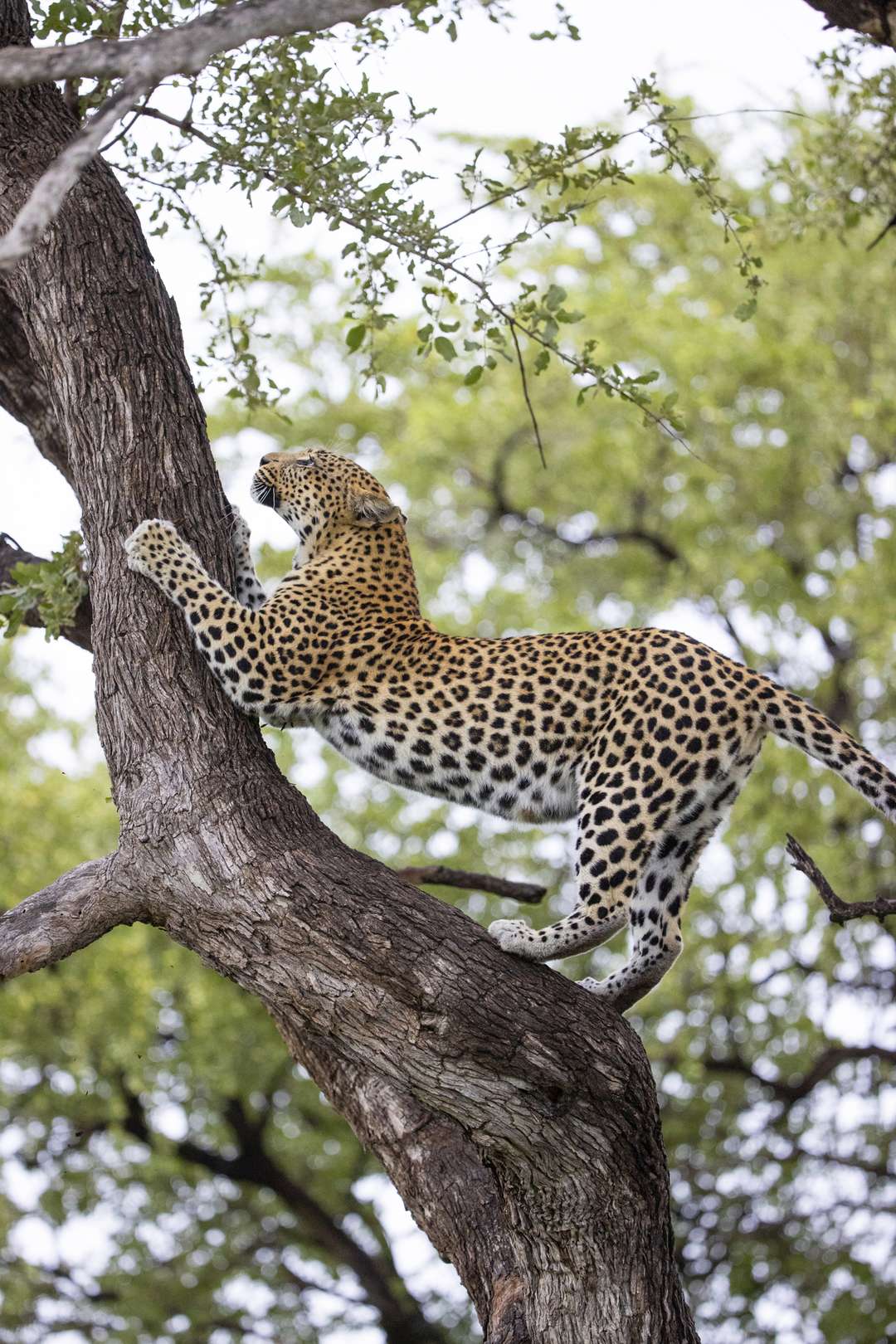
Image by Suzi Eszterhas
Leopard mothers of newborn cubs are notoriously secretive, but the Tubu Camp Female, with her relaxed and trusting nature, has allowed me to see and photograph her for over two years now. In 2018 I started following her with her then-litter of two females for 18 months as they grew. Both these sub-adults are now still within the reserve and thriving. I recently returned to Tubu Tree Camp right after she gave birth to her new litter – a single male cub – and to photograph him as young as one week old.
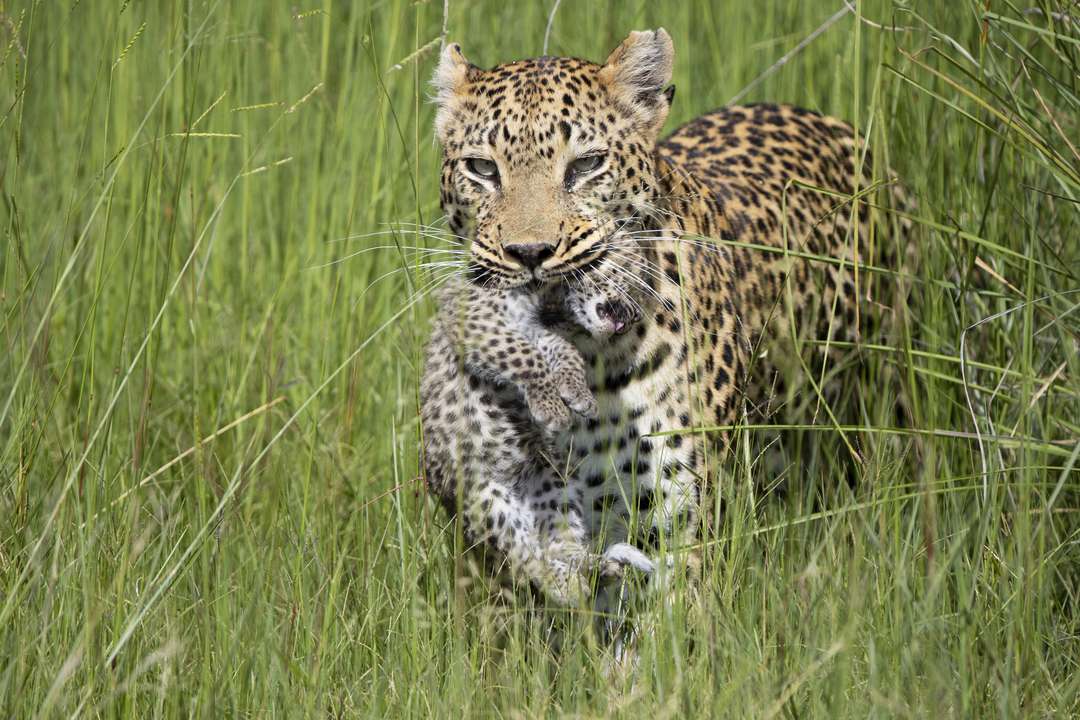
Image by Suzi Eszterhas
Leopard mothers with young cubs can move them often to make sure they are safe from predators, sometimes choosing a new den every three to four days.
One morning, after we had lost track of the Tubu Camp Female for a couple of days, I was out on a game drive with my guide, the amazing Kambango Sinimbo. Kambango found her tracks around camp, but we had not been able to identify the location of her new den. While out tracking we received a radio call from the camp manager alerting us to the fact that a staff member had “found a leopard cub in the camp bathroom/loo with a view”.
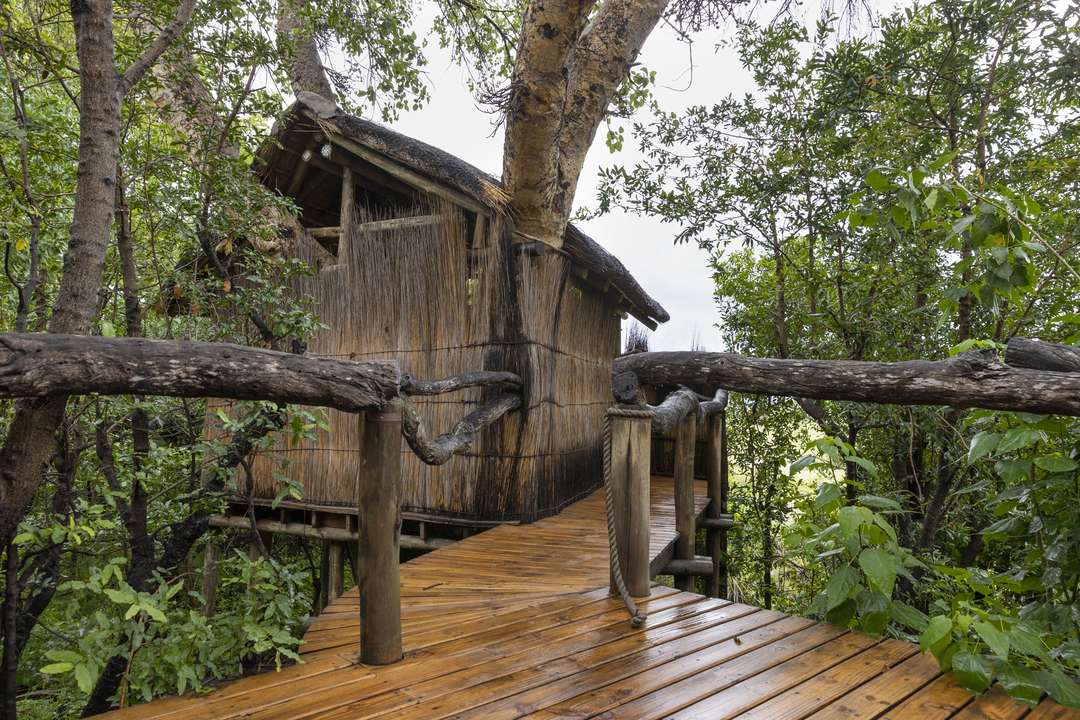
Image by Suzi Eszterhas
Kambango laughed and we both assumed that the staff member had mistakenly found a genet. Genets are animals that live in camp and are small and similarly spotted; to the untrained eye a genet could look like a cat, and even a leopard. We started back to camp, expecting a good laugh, but then another radio call from the manager. “Um, I’ve just had a look myself and it definitely looks like a leopard cub”. Though I took this call a little more seriously, I was still expecting to see a genet. Kambango, more convinced by this second call, said to me, “Grab your camera!”.
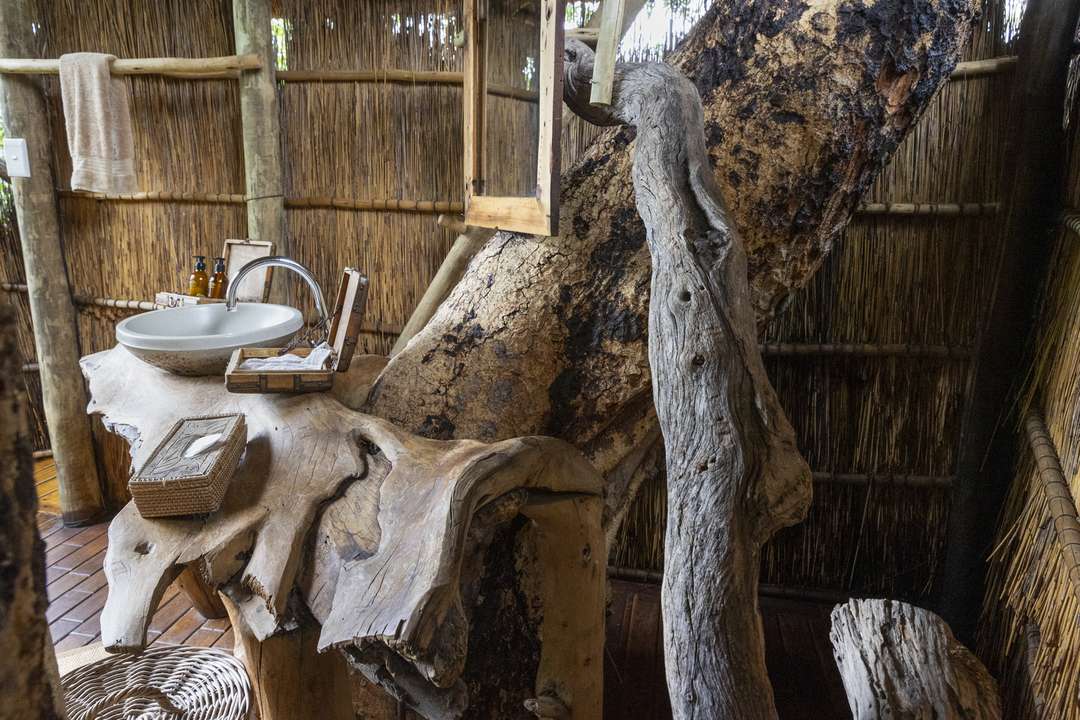
Image by Suzi Eszterhas
We arrived at camp and went straight into the loo with a view to investigate. And there on the floor, behind the sink, curled up against the wall was a tiny, furry ball of spots. I could hardly believe my eyes, it was indeed the leopard cub we had been looking for! I took a few seconds to snap some photos of the tiny, two-week-old cub – which was old enough to perceive me as a threat and opened his mouth in a silent hiss. Kambango and I quickly decided to leave, so as not to stress out the cub, and also because we had no idea where his mom was.
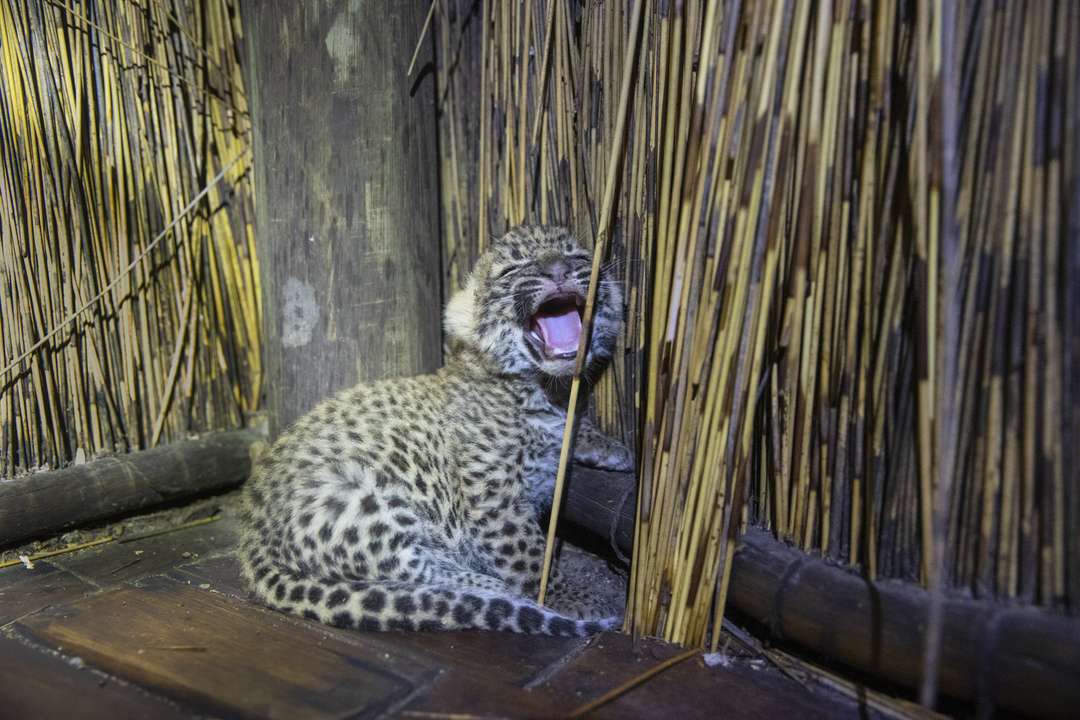
Image by Suzi Eszterhas
